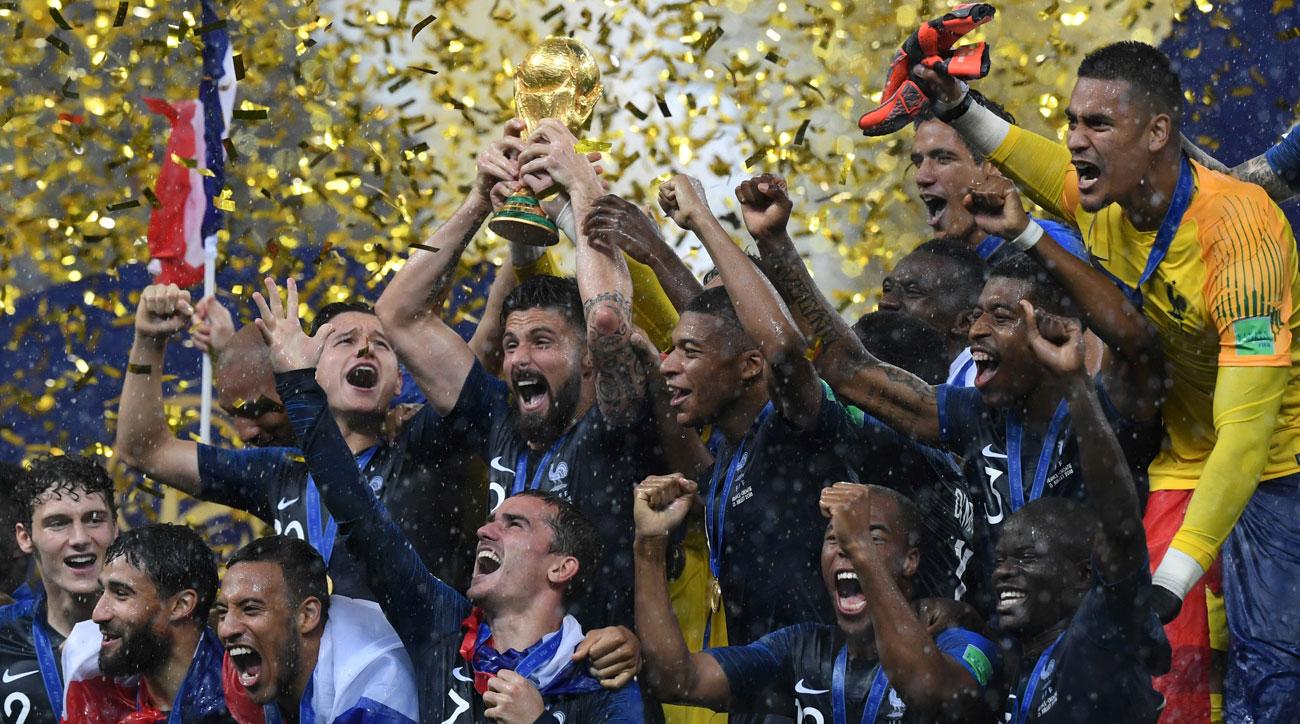By Paul Nicholson
October 25 – The FIFA Council meeting this Friday in Rwanda will look again at the proposed revised competition structure for the international calendar – a new Club World Cup competition, and a move towards some kind of Nations League. All underpinned by the elephant in the room of $25 billion of Saudi money.
It is a conversation that would have been unlikely to be taking place at this level if it wasn’t for the $25 billion incentive – how real the money is remains to be seen, never mind the increasingly multiple moral issues surrounding the source of the money. The geo-political motivation behind making an offer that has no grounding in commercial reality needs to be carefully thought through.
The $25 billion sell-off proposal is one that is building an increasingly long rap sheet of associated misdemeanours (in football and outside of it), put out there by the leadership of the executive function of FIFA that is showing all the signs of having lost its moral compass.
But put all that aside and think about where this leaves the mens World Cup – the commercial centrepiece commercially of everything FIFA does, and the showcase of the sport and everything that can be good about football to the world.
Russia 2018 was a World Cup that FIFA president Gianni Infantino keeps telling everyone was the greatest ever. That’s debateable on many fronts but it was an outstanding event and certainly the best under his tenure as president, even if it was pretty much sorted out by the time he had wriggled his way to the top of FIFA’s political greasy pole.
Even so, it would be perhaps the most naïve statement ever uttered by a football administrator to suggest that the proposed competition changes to the international calendar will have no impact on the World Cup.
Cross-confederation blurring of the lines
There is another major issue in the World Cup debate. An issue that could similarly change World Cups and their international plurality for the foreseeable, particularly when it comes to hosting.
The award of the expanded 48-team 2026 World Cup to the combined bid of the US, Mexico and Canada was as inevitable as the pain of the loss Morocco was once again going to feel with another bid failure.
2026 has ushered in a new landscape in the World Cup bidding brouhaha. The complex issues of joint bids are going to get even more politically complicated as the race for 2030 World Cup hosting begins. South America has long been talked about as a potential host with a three-nation bid to be led by Uruguay. The four British nations also look likely to combine for a joint bid.
But the bid that could prove to be the World Cup game-changer could come from the cross-confederation alliance of Spain, Portugal and a wounded but determined Morocco. Such a bid would be expected to command the full support of the African nations and a good chunk of Europe. It would be hard to defeat.
Cross-confederation bidding in this case would be the game-changer that alters the global face of World Cup bidding by blowing apart the general principle of rotating the World Cup between confederations (one of the strongest reasons why it was Concacaf’s turn for 2026).
This is potentially very bad news for Asia and South America. In particular it would be a big blow for China that has invested so heavily in world football. Not with a $25 billion cash promise, but in sponsorship with FIFA and multiple grassroots and professional outreach programmes at home (and not with a $25 billion cash promise).
With the principle of rotating the World Cup between confederations dispensed with, the European giants of England, Germany, France and Italy would likely declare open season on claiming the World Cup their own. Their clubs have all the world’s best players, they can (and want) to control the calendar to protect those investments, and they have the bulk of the world’s football attention at the top level of the game.
This is where the powerbase would lie. It is hard to see China (a nation with expressed ambition) being able to compete in a World Cup bid battle with that kind of European football muscle without the protection of geographical rotation from the governing body. To allow the World Cup too truly travel the world the European powerhouse needs to be gently regulated out of the bidding field.
It wouldn’t just be China and Asia that would pushed to the fringes. The South Americans would be similarly alienated.
It might feel like a small decision to allow a cross-confederation bid but the reality of the longer term global impact would dismantle true global inclusivity.
FIFA’s Council has some big decisions to make beyond just deciding on whether to fill their bank with $25 billion. There is a much wider global responsibility and philosophy at stake.
And the protection of its biggest (and unbroken) asset.
The World Cup is still the only event that can stop the world for a full month every four years. For all of FIFA’s integrity failings and governance failures, the World Cup still stands out as a beacon of unity and hope for the world. A place where the whole world can compete with national pride and (for the most part) with humility and respect for each other. Most people think that is worth protecting at all costs, one wonders if FIFA’s executive and its political wing really understand what this means.
Contact the writer of this story at moc.l1714033981labto1714033981ofdlr1714033981owedi1714033981sni@n1714033981osloh1714033981cin.l1714033981uap1714033981

